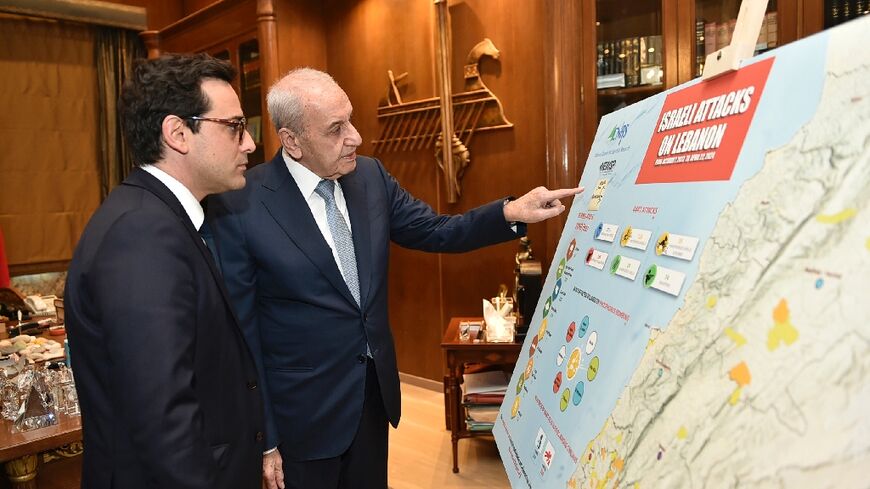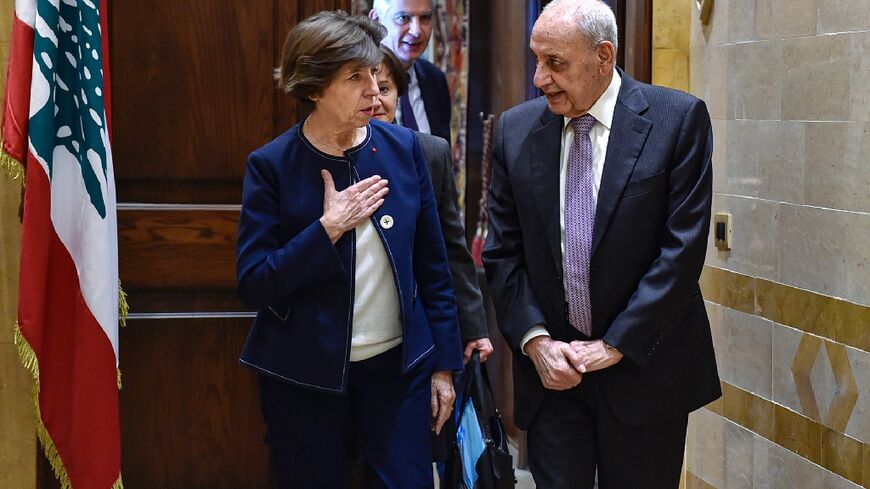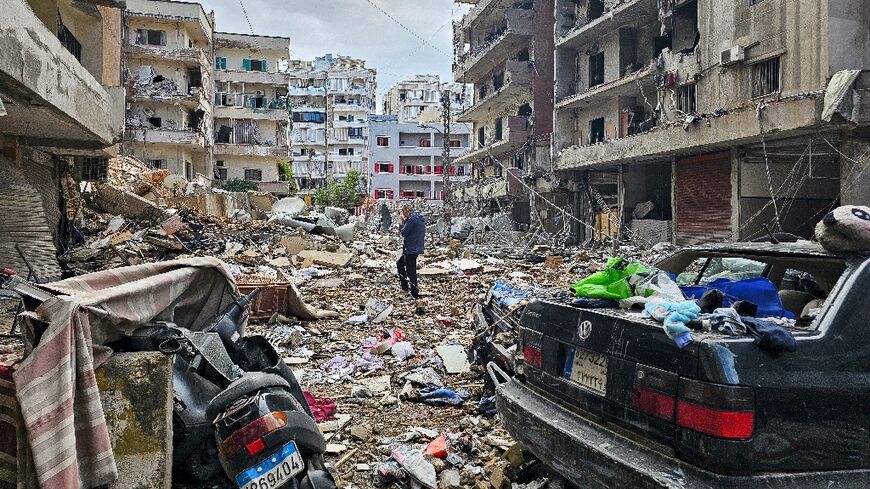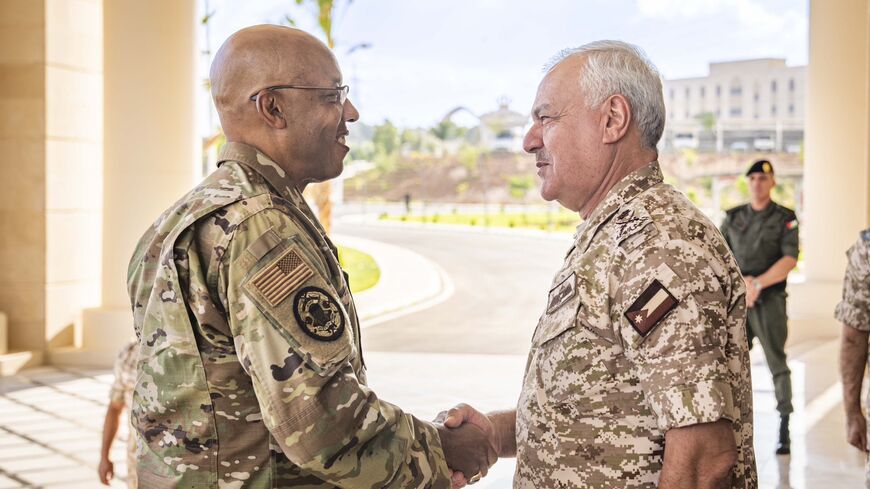UK's Cameron in Beirut seeks calm on Lebanon-Israel border
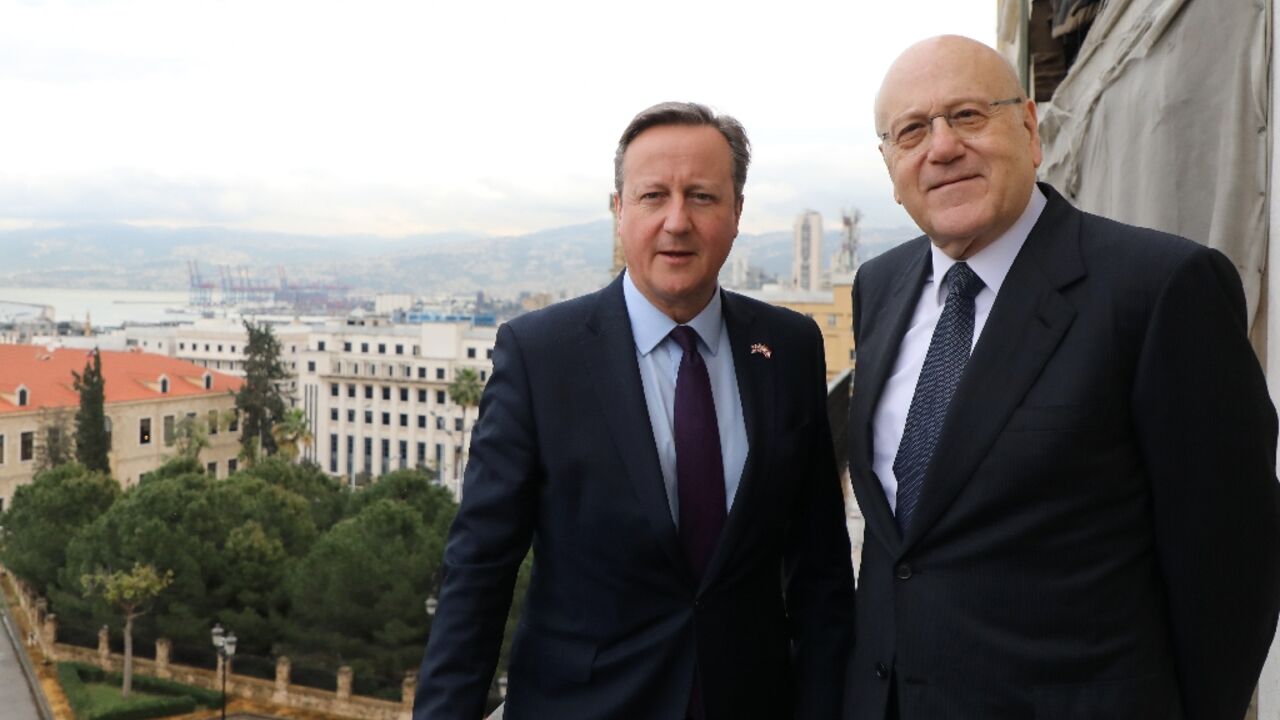
British foreign minister David Cameron met Lebanese prime minister Najib Mikati in Beirut Thursday to discuss defusing tensions on the Lebanon-Israel border as Israel's military reported new exchanges of fire.
Since the outbreak of war between Hamas and Israel on October 7, the border has seen near-daily exchanges between Israel and Lebanese militant group Hezbollah, a Hamas ally.
Cameron and Mikati discussed "ways to restore calm in southern Lebanon, as well as the political and diplomatic solution that is needed," the prime minister's office said.
Cameron is the latest in a succession of Western ministers to visit Beirut amid concern that the Gaza war could spark a wider conflict involving Iranian allies around the Middle East.
A major focus of their efforts has been to reinforce the United Nations Security Council resolution that ended a 2006 war between Israel and Hezbollah.
Resolution 1701 called for all armed personnel to pull back north of the Litani River, some 30 kilometres (20 miles) from the border with Israel, except for Lebanese state security forces and UN peacekeepers.
While Hezbollah has not had a visible military presence in the border area since 2006, the group still holds sway over large parts of the south, where it has built tunnels and hideouts and launched missile and drone attacks into Israel.
Mikati discussed with Cameron "ways to implement UN Resolution 1701", his office said.
"Lebanon supports a peaceful solution in the region," Mikati said, adding: "Lebanon supports the implementation of international resolutions to the letter, especially Resolution 1701."
Cameron also met the speaker of the Lebanese parliament, Nabih Berri, a Hezbollah ally, as well as army chief Joseph Aoun.
- 'Spying devices' -
A Western diplomat told AFP there was an increasing possibility Israel will escalate border tensions because of internal political pressure, "but meanwhile, Hezbollah does not want to start a war".
Hezbollah had previously signalled its willingness to endorse a diplomatic solution, but only after Israel ends its war in the Gaza Strip.
Western diplomats, including British officials, are pushing for a solution that would include "fully implementing resolution 1701 and giving new impetus" to UN peacekeeping forces in Lebanon (UNIFIL), said the Western official.
On Thursday, the Israeli army said that it responded to attacks from Lebanon by striking the source of the fire, in addition to targeting "a Hezbollah military site in Tayr Harfa in southern Lebanon".
Hezbollah had earlier said it struck Israeli "spying devices".
Senior Hezbollah official Nabil Kaouk said Wednesday the group had "intensified" its operations "in response to Israel's escalation", Lebanon's official news agency NNA reported.
His comments came after Israeli Defence Minister Yoav Gallant said on Monday that troops would "very soon go into action" near the Lebanese border.
Nearly four months of cross-border fire have killed more than 210 people in Lebanon, most of them Hezbollah fighters but also including more than 25 civilians, according to an AFP tally.
On the Israeli side of the border, nine soldiers and six civilians have been killed, Israeli officials have said.


